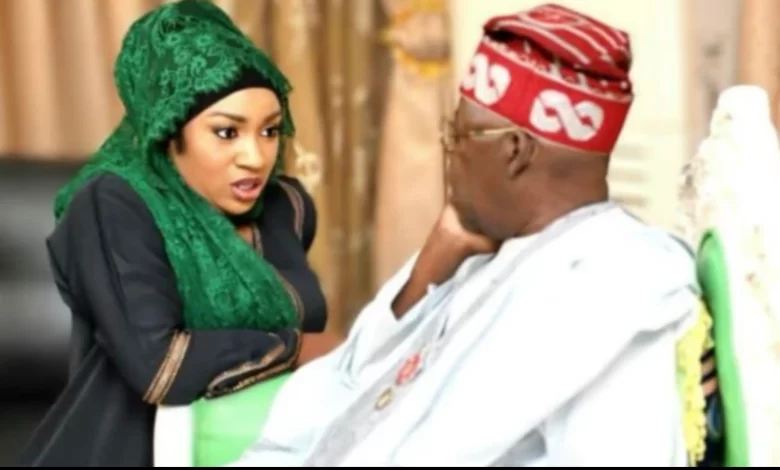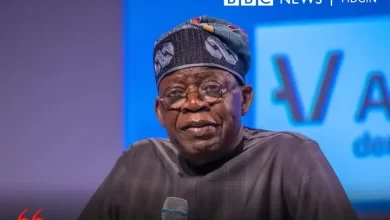Dr. Betta Edu Today 12 Jan Update: The questions Minister Dr. Betta Edu must answer Are Here

Dr. Betta Edu Today 12 Jan Update: The questions Minister Dr. Betta Edu must answer Are Here
Dr. Betta Edu: “Any officer who pays public money into a private account is deemed to have done so with fraudulent intention,” according to Nigeria’s Financial Regulations, 2009.
On Friday, Dr. Betta Edu, the Minister of Humanitarian Affairs, acknowledged as authentic a memo dated December 20, 2023, which demonstrates her request to Oluwatoyin Madein, the Accountant General of the Federation, to move N585.2 million in public funds into a private account belonging to one of her ministry’s officials.
The transfer is against several provisions of Nigeria’s 2009 Financial Regulations, which are designed to stop corruption and other types of fraud.
The fund in question was moved from the National Social Investment office account, according to the minister’s memo, and it is intended to be distributed to vulnerable individuals in the states of Akwa Ibom, Cross River, Lagos, and Ogun under the federal government’s Grants for Vulnerable Groups poverty intervention program.
The project accountant, according to Mrs. Edu’s memo, is the official Bridget Oniyelu, whose personal United Bank of Africa account the N585.2 million was deposited into.
The minister stated in the memo that N73.8 million should go to Cross River State, N219.4 million to Lagos State, N72.4 million to Ogun State, and N219.4 million to the needy in Akwa Ibom State.
On X, the message has gone viral, and on the microblogging site, Mrs. Edu has been trending for the past two days.

The EFCC is already investigating Halima Shehu, the suspended National Coordinator of the National Social Investment Programme Agency (NSIPA), for alleged N37.1 billion fraud in the Ministry of Humanitarian Affairs. Betta Edu’s memo adds another scandalous aspect to this case.
In December, Mrs. Shehu stated that more than 1.5 million households nationwide had received N20,000 from the federal government’s Conditional Cash Transfer program.
The government intervention program has now been tarnished by the fraud charges.
The EFCC is looking into Mrs. Edu’s predecessor, Sadiya Umar-Farouk, for possible fraud.
Dr. Betta Edu responds to the memo leak
The minister asserted that the document was released as part of a scheme to blackmail her through her media assistant, Rasheed Zubair.
“It is obvious that the same funded disgruntled forces have been attempting to discredit the Honorable Minister, Dr. Betta Edu, and damage her reputation in recent days since she informed the government about the ongoing N44.8 billion fraud in NSIPA. The minister’s media assistant released a statement on Friday that said, “These elements are behind this latest misadventure and have been trying to link her to a phantom fraud.”
“It is best to overlook the well-known malicious intent of the pranksters who distributed the document.
“It is noteworthy that the Minister has routinely traveled to various regions of the nation since taking office approximately five months ago, including Borno, Zamfara, Niger, Kogi, Plateau, Nasarawa, FCT, Lagos Cross River, etc., to make sure she fulfills her mandate and stays impartial and dedicated to her work,” the statement continued.
Concerns concerning the pastor Betta Edu
But numerous important concerns that begged for answers were not addressed in the minister’s response to the leaked memo:
1). Because she is not the ministry’s accounting officer, Minister Betta Edu is not authorized by Nigeria’s Financial Regulations 2009 to directly request payments. The purpose of the law is to separate government business from politics and enable government affairs to function smoothly and professionally under a set of standards and guidelines that political officeholders might not be aware of, by designating a permanent secretary as the accounting officer of a ministry.
2). Chapter Seven, Section 713 of Nigeria’s Financial Regulations 2009 states that “Personal money shall in no circumstances be paid into a government bank account, nor shall any public money be paid into a private account (Minister Betta Edu violates this section).” The section emphasizes the need to separate public and personal money in government transactions.

Furthermore, “Any officer who pays public money into a private account is deemed to have done so with fraudulent intention,” according to the provision. The goal of this regulation is to stop fraud in government-related transactions.
- Rather than paying the beneficiaries directly by electronic means, why would the minister provide such a large sum of money to a civil servant? What kind of accountability system is in place?
- Only the Minister of Finance has the authority to issue warrants for the distribution of money that has been appropriated, according to Nigeria’s 2009 Financial Regulation. Why is Betta Edu, the Minister of Humanitarian Affairs, acting in this capacity?
- Given that Betta Edu is neither her ministry’s accounting officer nor his designated agent (as per the financial legislation), why is she the one requesting the payment of public funds?
- The Ministry of Humanitarian Affairs oversees the National Social Investment Office, which has a separate executive team. Why does Minister Betta Edu approve the withdrawal of money from the agency’s account without consulting the CEO of the company?







